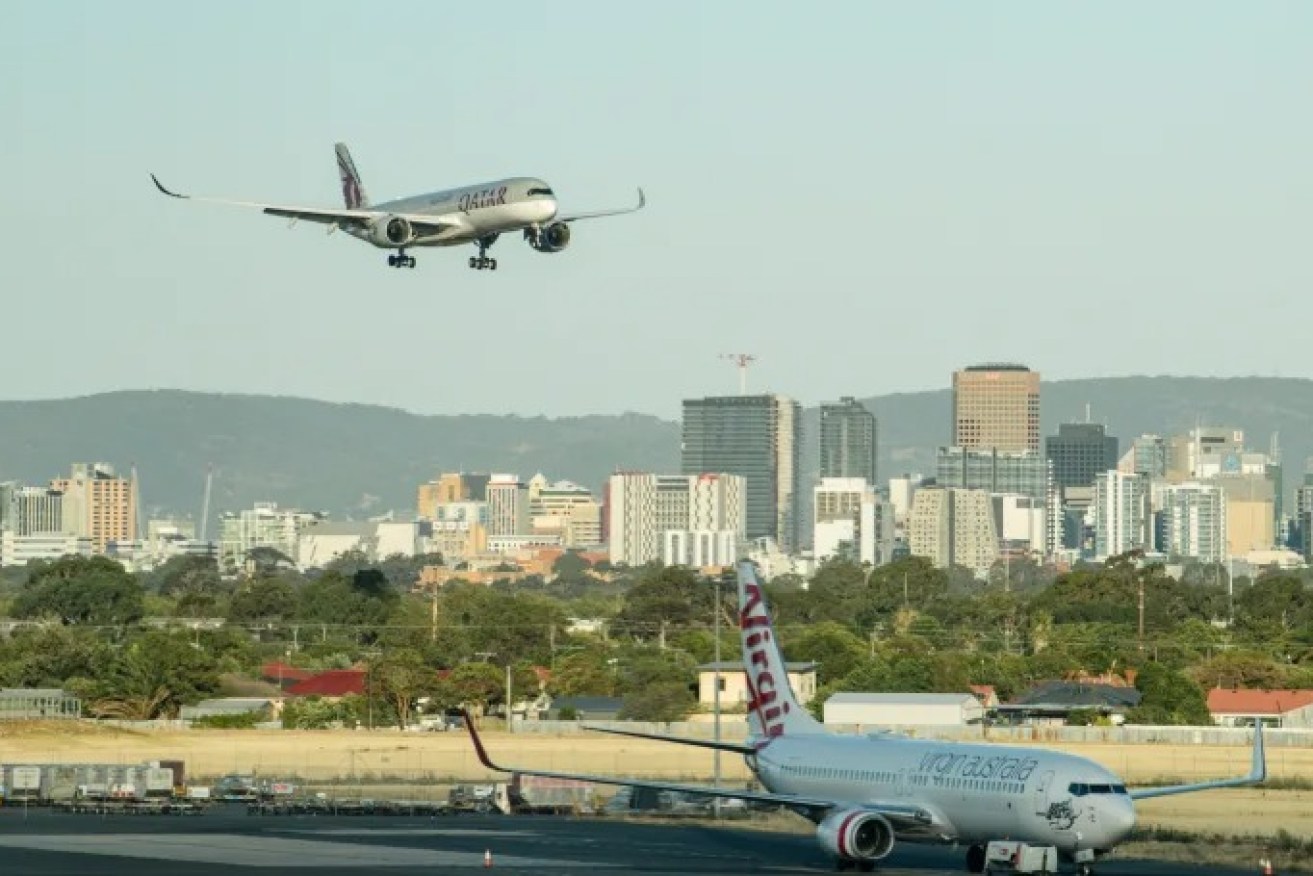‘Flight shaming’ threat to SA tourism
Social pressure to avoid flying due to emissions and climate change – known as “flight shaming” – will be a future challenge for South Australian tourism, an SA Tourism Commission executive warns.


Photo: Morgan Sette/AAP
In a submission to federal parliament’s Joint Standing Committee on Foreign Affairs, Defence and Trade, former acting SATC chief executive Stephanie Rozokos said flight shaming was a “real barrier for many consumers” and the potential impact of the issue was “elevated” for the South Australian market.
Flight shaming is an anti-flying movement which emerged in Sweden in 2018, discouraging travellers from taking unnecessary journeys by plane due to carbon emissions.
The message, which has gained traction in Europe, encourages travellers to take lower-emissions forms of transport such as trains to reduce their carbon footprint.
Rozokos, who served as interim CEO of the SATC from July 2022 to January 2023, wrote to the federal committee’s inquiry into Australia’s tourism and international education sectors to warn that “sustainability is both an opportunity and a challenge for Australia”.
“There is a challenge for government to consider how emerging themes, such as flight shaming, will impact Australia, knowing this is a real barrier for many consumers,” Rozokos wrote in her December submission.
“The cost of long haul flights, along with a desire to reduce carbon footprint, are known barriers that keep travellers close to home and are likely to be barriers for Australia.
“For Australia, the counter-balance is ensuring that the value proposition to travel long distances remains high.”
Rozokos, now SATC’s chief operating officer, said governments need to consider “how we can best ensure there is increased positive investment in offset strategies such as alternative sustainable fuel sources and electric vehicle infrastructure”.
She also said existing access problems for Adelaide, such as the lack of international direct flights compared to Sydney and Melbourne, left South Australia more exposed to the potential impacts of flight shaming.
“For South Australia, the issue is elevated by a generally reduced level of access to the state,” Rozokos wrote.
“It is important that support be provided to states such as South Australia where global barriers place additional pressure on securing direct access.
“For example, the elasticity of demand means that demand drops significantly when the cost and ease of access to Adelaide is greater than other Australian airports.
To travel to Adelaide with additional domestic connections severely disadvantages Adelaide, reduces visitation and, in turn, makes it harder to attract new airlines.
“This is compounded by the smaller states generally having less resources to grow demand and provide support to new airlines, when compared to the major states.”
Adelaide Airport currently services direct international flights from Singapore, Doha, Kuala Lumpur, Denpasar, Auckland and Nadi in Fiji.
The airport’s management hopes to secure additional direct flights from destinations in the United States and Japan while re-establishing routes from China and Hong Kong which were lost during the pandemic.
SATC’s national counterpart, Tourism Australia, warned global tourism is in a moment of “extreme competition”.
“Destinations globally are vying for the lucrative travel dollar after several years of disruption,” it said in a December submission to the federal inquiry.
“Like Australia they too are trying to rebuild their visitor economies.”
Tourism Australia also highlighted “sustainable travel” as a key issue and said it was “working hard to demonstrate the depth and diversity of Australia’s sustainable travel offerings”.
“As travellers look forward to travelling again, ‘travel better’ is a phrase that’s being heard more and more across the industry, it said.
“Tourism Australia’s focus on sustainability is aimed at making it easier for anyone planning, promoting, or selling travel to learn about and include sustainable Australian travel products and experiences in itineraries.
“With more and more travellers searching for responsible travel options, providing genuine sustainable experiences is ever increasing.”
The number of short-term overseas visitor arrivals to South Australia in December 2022 reached 23,110, according to the latest Australian Bureau of Statistics data.
The figure is still 30 per cent lower than pre-COVID in December 2019, however, significantly up from around 2500 visitors in January 2022.
Adelaide Airport management warned last year that international travel may not reach pre-pandemic levels until mid-2025.
An SATC spokesperson said it would continue to work with airlines and Adelaide Airport “to focus on the robust recovery of our international markets to pre-COVID levels”.
“The SATC is working with the aviation industry on sustainable aviation fuel options, as highlighted by the formation of Australia’s first Jet Zero-style Council by the Australian Government and involving government, airline, aviation fuels, finance, research, manufacturing and other aviation industry representatives,” they said in a statement.
“Recent data from AAL indicates that recovery has been even more rapid than anticipated, with total passenger numbers in January up to 91 per cent of where they were pre-COVID.”




